When you visit the App Store or Google Play and search “social media,” there are hundreds of apps to choose from. But, as the pool of social platforms grows, will any of them really change the game for marketers this year?

![Download Now: The 2024 State of Social Media Trends [Free Report]](https://no-cache.hubspot.com/cta/default/53/3dc1dfd9-2cb4-4498-8c57-19dbb5671820.png)
In our Social Media Trends Survey, we asked 1,000+ social media marketers about the social media platforms they‘ll use in 2023, and we’ve compiled the data for you to discover. You can also listen below.
2023 Social Media Trends
The hottest social media trends in 2023 are short-form video and live streaming. Short-form video was also the top format social media marketers use, and it has the highest ROI.
This isn’t a surprise, as platforms like TikTok are only growing in popularity as time goes on. Platforms like TikTok and Instagram allow creators to have more control of their content, create new media adorned with special effects, and leverage different channels to diversify traffic.
Understanding what other marketers are doing and leveraging social media trends early on gives you the time to pick up on what works, setting you ahead of competitors that wait to see how a format works and performs before using it themselves.
To help you stay on the cutting edge of social media, we’ve compiled a list of key platforms and features you should have on your radar this year — they’ve all jumped in usage and user base.
Social Media Platforms Marketers Should Watch in 2023
Social media platform usage among social media marketers in the U.S. changed from 2021 to 2022. Specifically, the use of Instagram (+35% YoY), TikTok (+15% YoY), and Facebook (+12% YoY).
1. Instagram
Instagram is the platform social media marketers expect to grow the most in 2023, and they say it has the most accurate algorithm and offers brands the best potential to grow their audience.
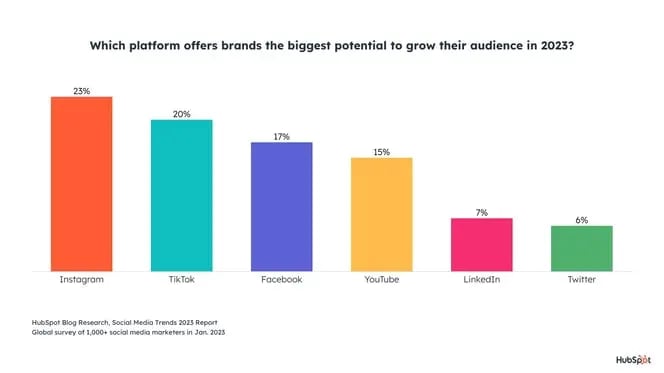 Instagram will also grow with first-time users, with 36% of social media marketers not using it yet planning to try it out in 2023.
Instagram will also grow with first-time users, with 36% of social media marketers not using it yet planning to try it out in 2023.
Increased investments in Instagram are in line with the trend of social selling, as marketers say the app offers the best ROI for selling products directly on an app, and consumers say it has the best in-app shopping experience.
The State of Social Media in 2023
Fill out the form to access the free report.
2. TikTok
As mentioned, short-form video is one of the most popular, top-performing, and highest ROI trends. Given this, it’s no surprise that TikTok usage has increased YoY as it caters to short-form videos. Marketers reported that TikTok offers the second-highest potential to grow audiences in 2023.
TikTok is a great platform for reaching Gen Z, as our consumer trends survey found that 62% of the generation uses TikTok, and it’s also the platform it spends the most time on.
3. Facebook
Data shows that Facebook usage significantly increased in 2022, so it’s worth watching in 2023. Especially so given that the top trend for 2023 is investing in social media communities, and Facebook is the best platform for doing so.
Don't have a Facebook page for your business yet? Here's how to make one.
4. Live Audio Platforms
Live audio chat rooms are the media format gaining the most steam in 2023, and 23% of marketers are planning to leverage them for the first time this year. Among social media marketers as a whole, Facebook Live Audio is the most popular platform (12% say they’ve invested in it).
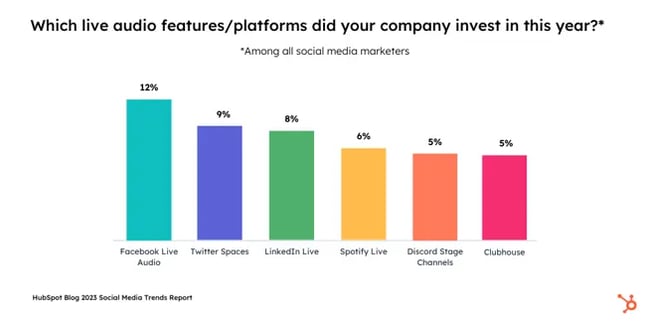 Facebook Live Audio is also the most popular live audio platform leveraged by social media marketers who already use live audio, followed by Twitter Spaces.
Facebook Live Audio is also the most popular live audio platform leveraged by social media marketers who already use live audio, followed by Twitter Spaces.
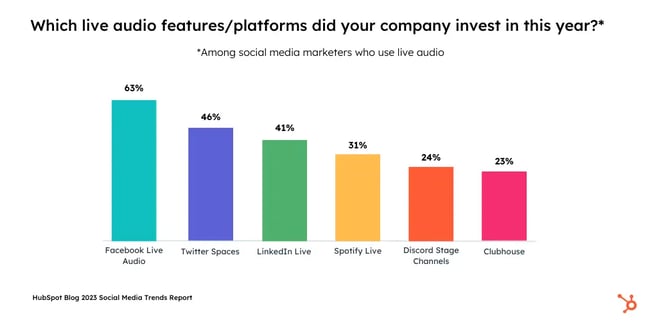 This makes sense, as 80% of Gen Z consumers, a demographic steadily growing into its purchasing power, enjoy audio content because they can express their individuality and explore different sides of their personalities.
This makes sense, as 80% of Gen Z consumers, a demographic steadily growing into its purchasing power, enjoy audio content because they can express their individuality and explore different sides of their personalities.
New Social Media Platforms
In the ever-evolving landscape of social media, new platforms are continuously emerging, bringing fresh ideas and opportunities to users and marketers alike. Here are some up and coming platforms to keep an eye on.
Threads
Launched by Meta in July 2023, Threads is one of the newest social media platforms on this list. Its arrival is timely due to the technical and cultural changes Twitter (now X) has faced since Elon Musk’s takeover in 2022.
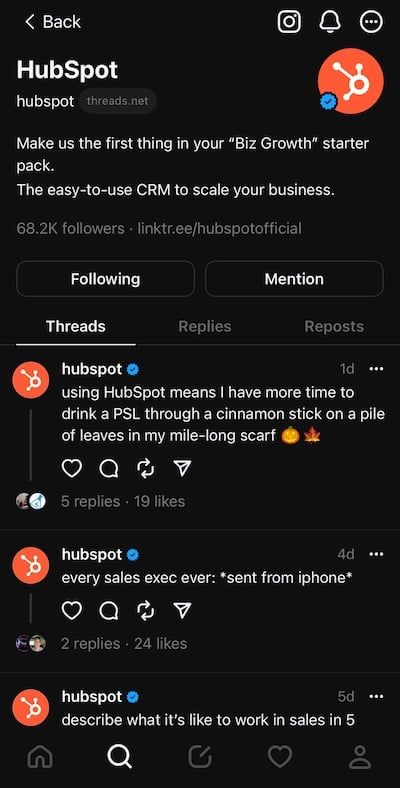
Thanks to its integration with Instagram, Threads grew rapidly, reaching 100 million active users within 10 days of its launch.
Users can seamlessly transfer their Instagram profile information and followers to Threads, simplifying app adoption. Additionally, users can embed Thread posts into their Instagram Stories and profile bios, generating more interest in the app.
Lemon8
Lemon8 is a new social media platform owned by ByteDance (aka TikTok’s parent company). Though it was initially launched in Japan in 2020, it became accessible in the U.S. and UK in February 2023.
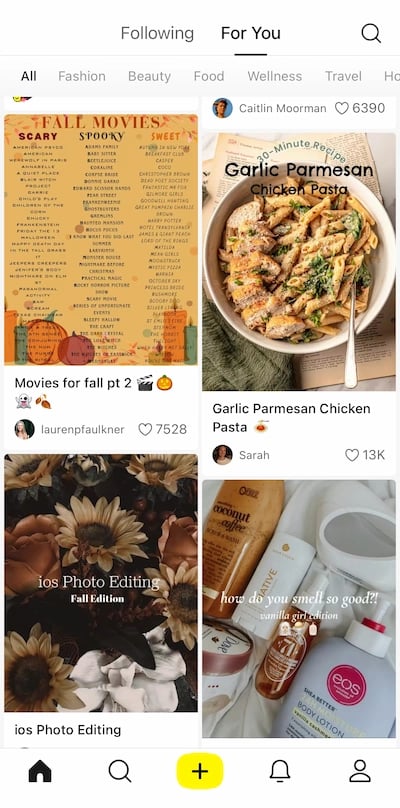
Lemon8 is often described as a combination of Pinterest and Instagram, since it’s a photo-sharing app where users can share and discover curated lifestyle content. Popular categories on the platform include fashion, beauty, and health and wellness.
Substack
Substack is an online platform that enables writers, journalists, and content creators to publish and monetize their work through subscription-based newsletters. It provides an easy-to-use interface for writers to create and distribute their content directly to subscribers.
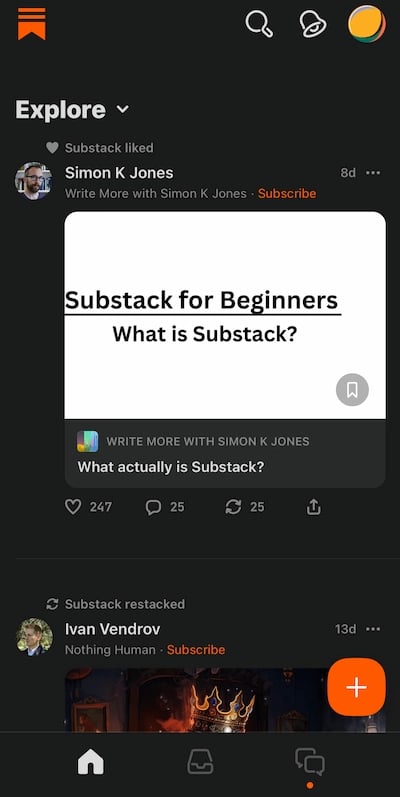
Substack also offers tools for managing subscriptions, collecting payments, and engaging with readers. The platform has gained popularity as a way for independent writers to generate income and build a loyal audience without relying on traditional media outlets or advertising.
BeReal
While other social media apps are flooded with materialism and superficiality, BeReal offers a platform where users can, well, be real.
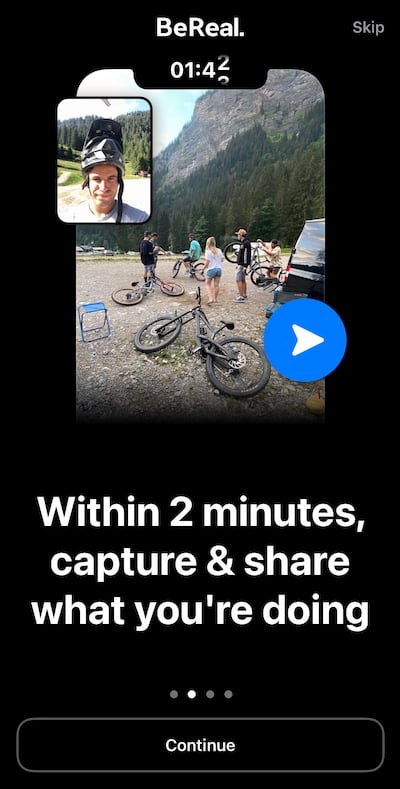
The photo-sharing app operates by sending you a notification at a random time every day, prompting you to capture a genuine snapshot of yourself and your surroundings in real time.
BeReal doesn’t provide users any filters, nor does it give you a lot of time to stage an insincere photo. Instead, it encourages users to share an authentic peak into their daily lives.
Partiful
With so many social media and communication channels out there, it can be hard to get the word out when hosting a party. That’s where Partiful comes in. This new social media platform aims to simplify the process of planning events and communicating with guests.

Partiful allows you to create party pages for your events and invite guests with a sharable link. The platform also allows hosts to create questionnaires, send event reminders, and collect money via Venmo or Cashapp.
When guests RSVP to the event, they can opt to get event updates texted to their phone and see who else is going. They can also share photos from the party on the event page and connect with other guests they met at the party.
Twitch
Twitch is a live streaming platform primarily used for streaming video games, eSports events, and other creative content. It allows users to watch live broadcasts of games being played by other players, as well as interact with the streamers and other viewers through chat.
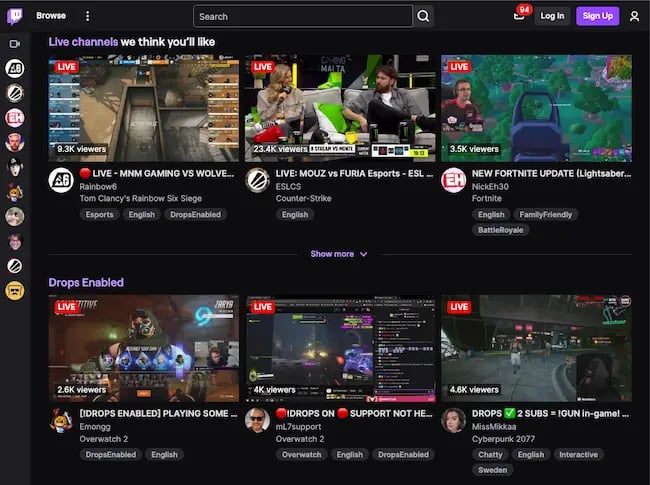
Twitch also offers features like subscriptions, donations, and a variety of streaming tools to enhance the streaming experience.
What Platforms Are Losing Steam?
According to the data, the platform with the most significant drop in usage is Twitter, with a -17% YoY change. Twitch has fallen in use, too (-30% YoY), but it had the second-lowest investment among social media marketers in 2021.
Platforms like Clubhouse and Twitter Spaces rose in popularity in 2020 during the beginning of the pandemic, but they have slowed in their growth and usage as other live audio platforms have grown.
For example, Clubhouse was one of the top emerging platforms/features that social media marketers noted investing in in our 2022 Social Media Trends Report, but the 2023 report found that, among all social media marketers, Clubhouse is 5th on the list in terms of investments.
How To Determine Which Social Media Platforms Are Worth the Investment
Marketers determine which social media platforms are worth investing in based on their potential for lead generation, audience reach, and the potential to drive traffic to your website.
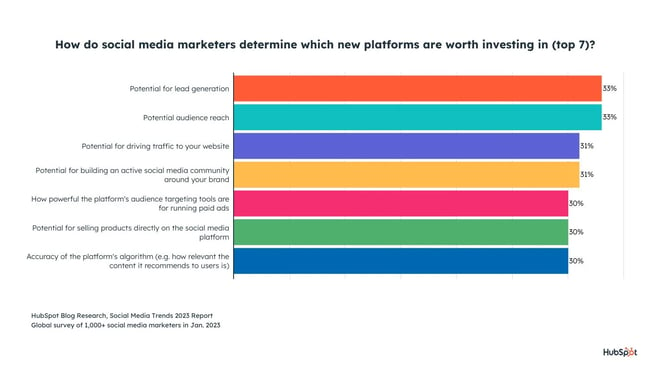
A platform's potential for building an active social media community around a brand is high on the list this year, which aligns with 90% of social media marketers saying that building an active social media community is crucial to a successful strategy in 2023.
Should you follow the social media trends of 2023?
Consumer behavior changes quickly in the digital space, and businesses that adapt to social media trends can see success.
If you keep an eye on this kind of marketing research and tailor it to your target audience, you can craft a stellar social media plan that drives awareness and shows your brand in a creative light.
Remember, every trend won’t work to achieve your goals, so don’t venture into this new social media landscape without the most up-to-date data.
Editor's note: This post was originally published in July 2019 and has been updated for comprehensiveness.
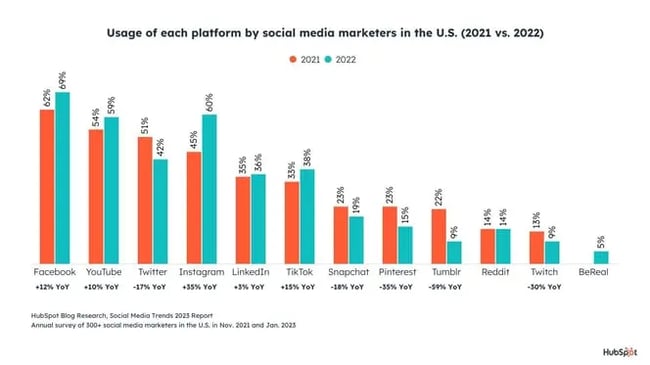
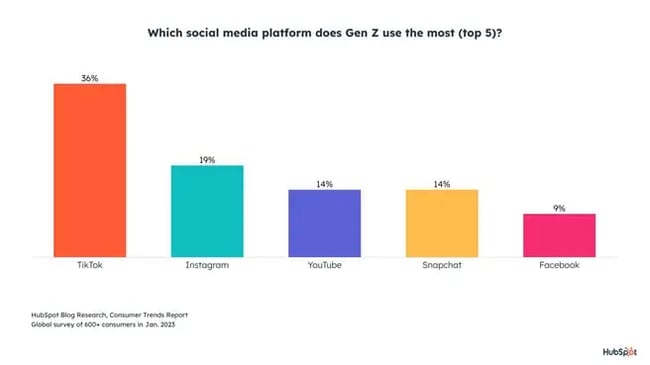
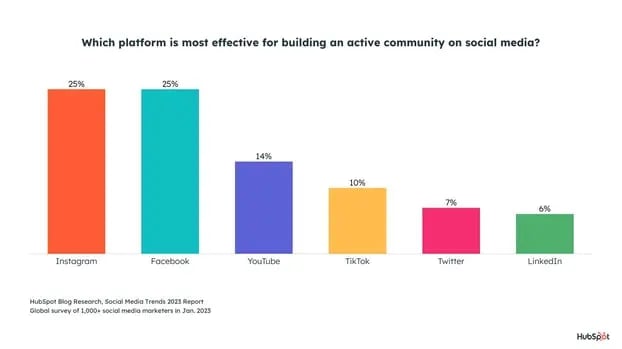

![Which Social Media Channels are Gaining and Losing Steam in 2024? [New Consumer and Platform Data]](https://blog.hubspot.com/hubfs/social%20media%20losing%20steam%20.jpg)

![The Future of Social Media [Research]: What Marketers Need to Know](https://blog.hubspot.com/hubfs/Future%20of%20Social%20Media.jpg)

![The Most Effective Types of Content on Social Media in 2024 [New Data]](https://blog.hubspot.com/hubfs/Copy%20of%20Featured%20Image%20Template%20Backgrounds%20%2816%29.png)



![11 Social Media Trends Marketers Should Watch in 2024 [New Data]](https://blog.hubspot.com/hubfs/social-media-trends_6.webp)
